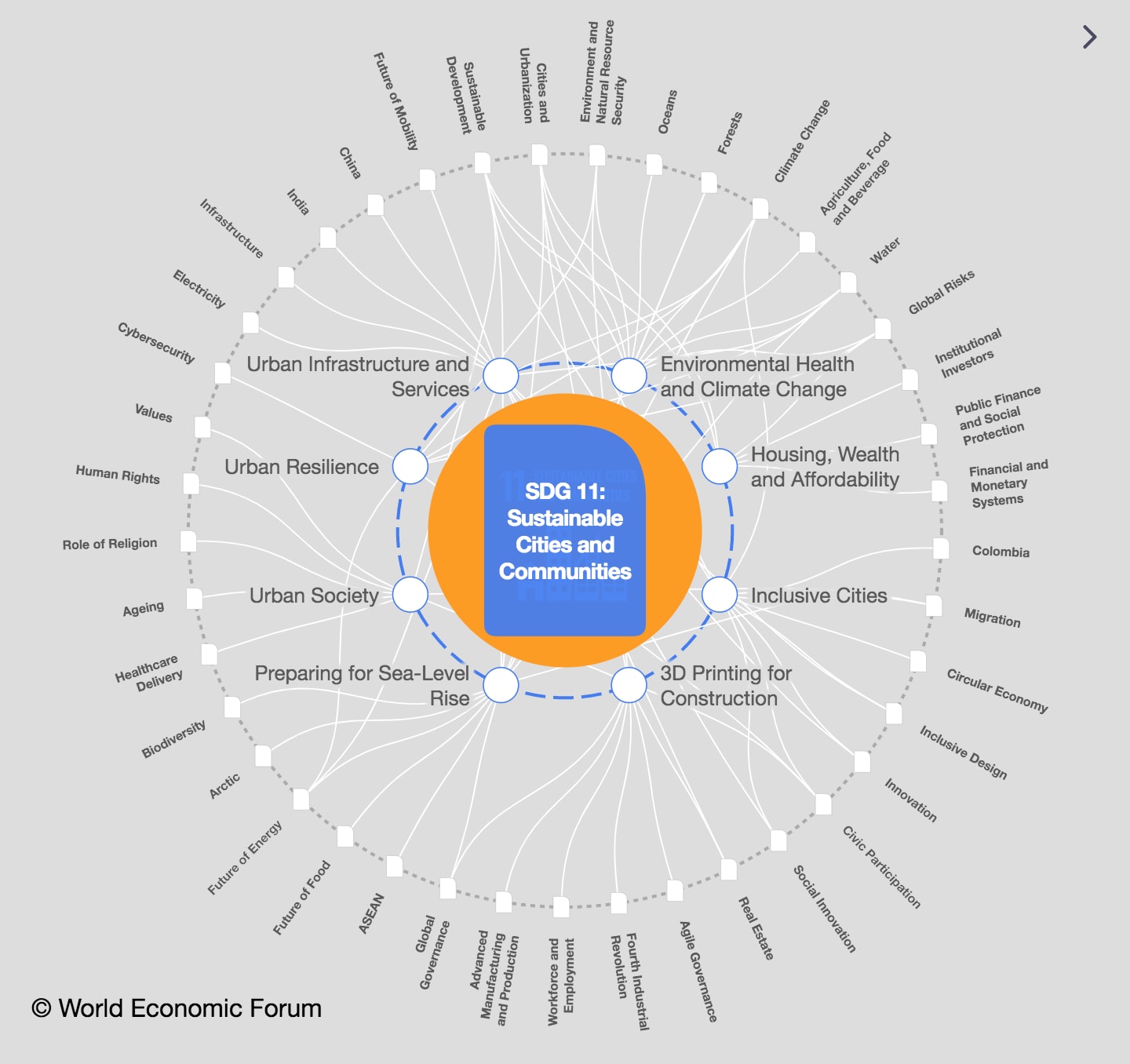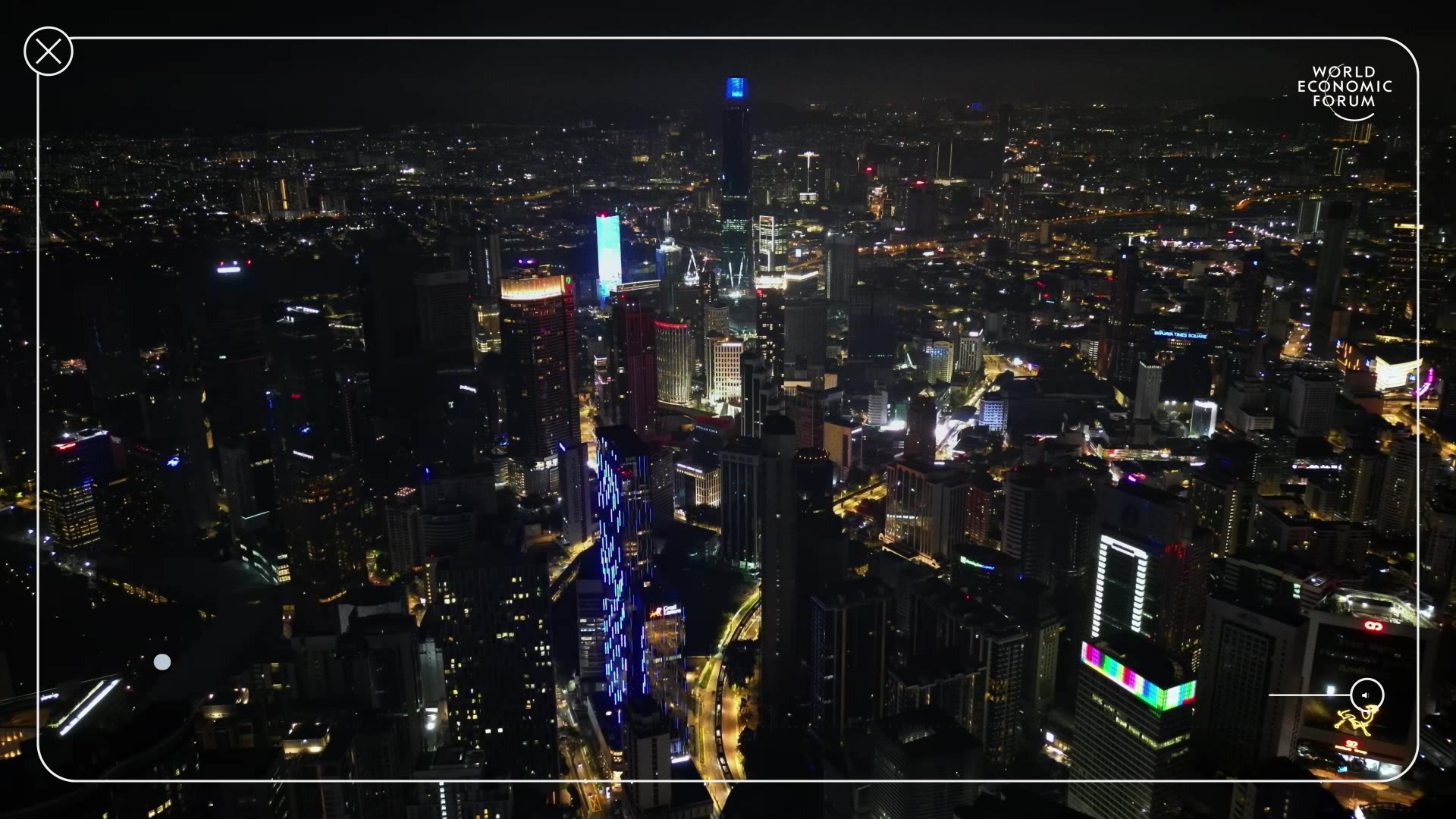Detroit knows a thing or two about revival — other cities should take notes

Downtown Detroit is experiencing a revival that other cities worldwide, many struggling after the pandemic, would do well to emulate. Image: Bedrock

Get involved with our crowdsourced digital platform to deliver impact at scale
Stay up to date:
Society and Equity
Listen to the article
- Today, with hybrid working arrangements proliferating and workers dispersing, cities need a new approach to keeping their cities bustling with activity and innovation.
- Cities worldwide can look to Detroit as an example of a city that has navigated hardship and come out the other side stronger, and positioned to build a thriving, sustainable and innovation-positive economy.
- After a decade of rejuvenation, Detroit was named the number one emerging start-up ecosystem in the world.
For twenty-five years, the rebound of central business districts has been a driving force in the rebirth of US cities. That positive dynamic is now threatened as remote work becomes a structural feature of the post-pandemic economy, with detrimental, domino-like effects on commercial real estate, small businesses, transit ridership and municipal tax generation.
The media is replete with stories about how star cities like San Francisco are scrambling to diversify uses and mitigate the continued fallout from the pandemic. In these cities, talk of an urban “doom loop” proliferate.
Yet, alongside the dystopian narrative, there is a city to learn from that has been purposefully building a 21st-century downtown over the past decade: Detroit. Once dominated by the auto industry — much the way San Francisco became overly dependent on large technology companies — the lessons learned in Detroit are tailor-made for pandemic-stressed downtowns.
Detroit's decade of revival
Detroit invented a playbook for the post-pandemic downtown at a time when other cities were taking their success for granted.
The focus of these varying efforts is a 7.2 square mile area known as Greater Downtown, the economic engine that made Detroit the wealthiest city in America in 1950. Since 2010, the Detroit-based real estate company Bedrock has rehabilitated more than 100 abandoned downtown properties. This private investment accelerated a holistic approach to urban transformation driven by additional public and private investments in innovation districts, community-based economic development, public space improvements, residential conversions, and more.
These transformative efforts are already having a significant impact. Job growth is back — it sits at 6% over the last 10 years, while the growth of the prime-age adult population in Greater Downtown is even larger, an 18% increase. These trends are building a diverse and growing economy, and adding future jobs rooted in the knowledge economy and in advanced manufacturing, technology access and digital solutions.
While Detroit still has a lot of work to do, in 2022 the city was named the number one emerging start-up ecosystem in the world. According to Genome, Detroit’s “Ecosystem Value” stands at $90.6 billion, outranking cities including Kuala Lumpur, Hong Kong, Jakarta and Minneapolis.
Five strategies for renewing Detroit
Detroit has deployed five central strategies, which can be adapted and replicated by downtowns everywhere.
Diversifying downtown
First, the city began diversifying the uses of its downtown years ago. Stakeholders embraced a mix of uses and experiences that go far beyond the traditional fare of central business districts. This new mix includes:
- The conversion of office towers to residential buildings, which started well before the pandemic;
- A substantial uptick in entertainment activities and the experience economy;
- The relocation of the innovative parts of universities, health care facilities and other anchor institutions, to form a new economic foundation for product invention, company formation and job creation;
- The purposeful linkage across disparate technology-driven sectors like automotive, life sciences and fintech; and
- First-mover adoption, at scale, of climate friendly buildings, renewable energy and 21st century transportation.
Unlocking space to generate value
The downtown has become a playground for quality placemaking that unlocks the full value of historic buildings, vacant parcels, corridors, alleyways, sports stadia and entertainment venues.
The Monroe Street Midway, for example, once a vacant block in the heart of the downtown, has been redesigned as a public sports hub, with a roller rink, mini golf, basketball, local art and live programming. In the past year, the Midway had more than 140,000 visitors.
Even during the pandemic, large redevelopment projects continued apace, including the site of the former Hudson’s Department Store, once the second largest in the US, which sat empty for decades. Named the “most significant” redevelopment project in Detroit in decades, it is being transformed into 1.5 million square feet of office, retail, food and beverage, hotel, residential, event and meeting space and activated open spaces in the heart of downtown Detroit.
Capitalising on natural advantages
Detroit is taking full advantage of the Detroit River, which connects the Motor City to the north and Windsor, Canada to the south. Situated at one edge of the downtown, the Detroit Riverfront has been the beneficiary of one of the largest reclamation projects in the US. Led by the Detroit Riverfront Conservancy and with game-changing investments by the Kresge Foundation and the Ralph C. Wilson Foundation, the Riverfront now boasts a network of distinctive parks, plazas and promenades that attract 3 million visitors annually. These investments now provide a foundation for attracting thousands of residents to new neighbourhoods that are livable, walkable and inclusive.
Embracing innovation
Detroit is embracing and building three “innovation districts,” the new geography of innovation and job creation in cities across the world. One of them will be developed on a site initially slated for the Wayne County jail, with the vision of becoming a centre of rehabilitation medicine and related adaptive sports, mobility access and engineering. It will also have a first-of-its-kind open-source co-working lab focused on global innovations in urban technology applied to building systems, urban infrastructure and climate tech. Already, the Michigan Israel Business Accelerator has decided to anchor its Michigan Israel Innovation Center in this district.
To the west of downtown, Corktown has become a centre of innovation in advanced industry. The Ford Motor Company has renovated the formerly abandoned Michigan Central train station, the Book Depository and other nearby buildings to become a premier hub for smart mobility solutions.
And in Midtown, a landmark Detroit-centered partnership between Henry Ford Health, one of the nation’s leading academic medical centres, and Michigan State University, is fostering ground-breaking research, training, and increasing diversity among the next generation of healthcare professionals and addressing the healthcare needs of traditionally underserved communities.
Prioritising inclusion
A focus on inclusion ties all these interventions together. The Riverfront, for example, connects residential neighbourhoods to the historic Eastern Market through the Dequindre Cut Greenway, a two-mile urban recreational path built on a defunct rail line.
Midtown is the heart of inclusive entrepreneurship efforts in the city, concentrated around TechTown Detroit. This high-tech hub has supported more than 3,000 Detroit-based startups since its launch in 2007, a good portion of which are owned by African American entrepreneurs.
Revitalisation downtown and elsewhere extends to surrounding neighbourhoods. More than $181 million in investment from 24 funders is being deployed in 10 neighbourhoods through the Strategic Neighborhood Fund, a partnership between the City of Detroit and Invest Detroit, a Community Development Financial Institution. These disparate efforts blend the visionary and the pragmatic.
The most dramatic infrastructure investment is the planned demolition of Interstate 375 – a federally backed highway that bulldozed the neighbourhoods of Black Bottom and Paradise Valley and divided the city. It will become a new boulevard that reconnects planned innovation districts to the burgeoning entertainment district anchored by Black-owned establishments.
Through all these efforts, Detroit is aggressively taking advantage of federal, state and local funding, integrating public investments and private and philanthropic sources of capital for maximum effect.
As remote work continues to transform cities everywhere, they would be wise to apply the lessons from Detroit around diversifying uses, making quality places, reclaiming waterfronts, creating innovation districts and focusing relentlessly on inclusion. This holistic, all-hands-on-deck approach to downtown revitalisation is critical to transforming a doom loop into a virtuous cycle of housing growth, business formation and urban vitality.
Don't miss any update on this topic
Create a free account and access your personalized content collection with our latest publications and analyses.
License and Republishing
World Economic Forum articles may be republished in accordance with the Creative Commons Attribution-NonCommercial-NoDerivatives 4.0 International Public License, and in accordance with our Terms of Use.
The views expressed in this article are those of the author alone and not the World Economic Forum.
The Agenda Weekly
A weekly update of the most important issues driving the global agenda
You can unsubscribe at any time using the link in our emails. For more details, review our privacy policy.
More on Urban TransformationSee all
Lisa Chamberlain
April 25, 2024
Victoria Masterson
April 17, 2024
Fatemeh Aminpour, Ilan Katz and Jennifer Skattebol
April 15, 2024
Victoria Masterson
April 12, 2024







